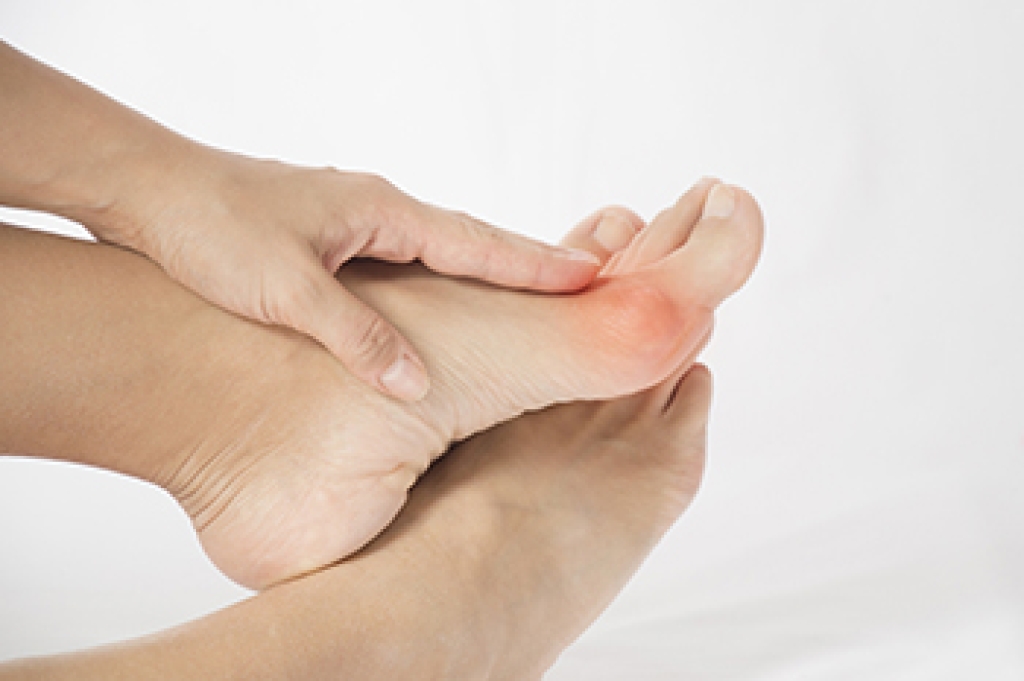
Bunions are considered to be one of the most common foot problems among adults. Research has shown that approximately one-third of adults are afflicted with bunions, and it may happen from wearing shoes that do not have sufficient room for the toes to move in freely. Additionally, genetics may play a role in developing bunions, and while that cannot be prevented, steps may be taken to bring relief. A bunion is defined as a bony growth that develops on the side of the big toe, and if the bunion is large, it may cause the other toes to shift toward each other. It is beneficial to reduce the length of time high heels are worn, and replace them with stylish shoes that have a low heel and adequate room in the toe box of the shoe. Temporary relief may be found when a protective pad is worn over the bunion, and this may be helpful in preventing corns from developing. If you have developed a bunion, it is suggested that you schedule an appointment with a podiatrist who can offer you relief, which may include surgery for permanent removal.
If you are suffering from bunion pain, contact Kenneth Donovan, DPM of Advanced Care Foot and Ankle. Our doctor can provide the care you need to keep you pain-free and on your feet.
What Is a Bunion?
Bunions are painful bony bumps that usually develop on the inside of the foot at the joint of the big toe. As the deformity increases over time, it may become painful to walk and wear shoes. Women are more likely to exacerbate existing bunions since they often wear tight, narrow shoes that shift their toes together. Bunion pain can be relieved by wearing wider shoes with enough room for the toes.
Causes
- Genetics – some people inherit feet that are more prone to bunion development
- Inflammatory Conditions - rheumatoid arthritis and polio may cause bunion development
Symptoms
- Redness and inflammation
- Pain and tenderness
- Callus or corns on the bump
- Restricted motion in the big toe
In order to diagnose your bunion, your podiatrist may ask about your medical history, symptoms, and general health. Your doctor might also order an x-ray to take a closer look at your feet. Nonsurgical treatment options include orthotics, padding, icing, changes in footwear, and medication. If nonsurgical treatments don’t alleviate your bunion pain, surgery may be necessary.
If you have any questions, please feel free to contact our office located in Charleston, SC . We offer the newest diagnostic and treatment technologies for all your foot care needs.
